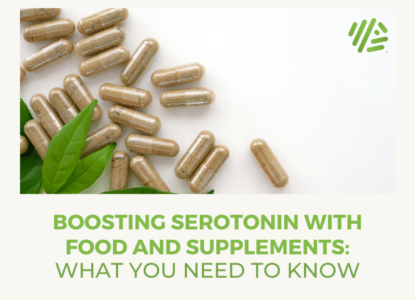Genetics and Depression: These 44 SNPs are Linked to Poor Mental Health
Article at a Glance
- While depression has thought to be linked to our genetics in some way, at least partly, researchers did not discover until recently the multitude of genetic variants that may be tied to depression. Thirty new genetic variants were identified to total 44, which may have some effect on our likelihood of developing depression in addition to lifestyle and environmental factors.
- Depression is difficult to treat, with about 50% of patients not responding to standard types of treatment such as SSRIs and MAOIs. With new information about our genetics, however, we may be able to improve treatment of depression.
- There is no single genetic variant that dramatically increases our risk for depression; rather, each mutation may contribute in a small way to a person’s risk. Nutrigenomics may assist in the development of alternative treatment plans for depression, including natural supplement use such as curcumin and fish oil.

Contents
Depression is a multifactorial disease, meaning that there are many things that contribute to the condition. For a long time, scientists have suspected a genetic element to depression, but finding those links has proven difficult. However, in 2018, researchers published a paper in the journal Nature Genetics detailing 44 genetic risk factors for depression, at least 30 of which have never before been identified. Let’s dig into those genetic variants and how they might influence efforts to prevent and treat depression in the future.
New research linking genes and depression
The study in question was a meta-analysis carried out by a global consortium of over 200 scientists. Together, these researchers looked at the DNA of more than 135,000 people with depression, along with almost 350,000 people in good health. They identified 44 gene variants that appear to contribute to an increased risk of depression. Prior to this study, only around a dozen such genetic variants had been linked to the risk of depression. The following are SNPs associated with depression:
- rs159963
- rs1432639
- rs12129573
- rs2389016
- rs4261101
- rs9427672
- rs11682175
- rs1226412
- chr3_44287760_I
- rs7430565
- rs34215985
- chr5_87992715_I
- chr5_103942055_D
- rs116755193
- rs11135349
- rs4869056
- rs115507122
- rs9402472
- rs10950398
- rs12666117
- rs1354115
- rs10959913
- rs7856424
- rs7029033
- rs61867293
- rs1806153
- rs4074723
- rs4143229
- rs12552
- rs4904738
- rs915057
- chr14_75356855_I
- rs10149470
- rs8025231
- rs8063603
- rs7198928
- rs7200826
- rs11643192
- rs17727765
- rs62099069
- rs11663393
- rs1833288
- rs12958048
- rs5758265
The genes linked to depression are also associated in many cases with other psychiatric conditions, such as schizophrenia and bipolar disorder. What’s more, some of the genes are linked to health issues that often accompany and perhaps contribute to or result from depression, such as obesity and insomnia.
A note on the difficulty of treating depression
Depression is notoriously hard to treat and in many cases is the result of socioeconomic factors, trauma, relationship dynamics, family history, physical illness, and biochemistry. The importance of this latest study lies, at least in part, in its potential to provide an explanation as to why around 50% of people with depression do not respond to standard treatments. Understanding the genetic underpinnings of depression could help us to understand why people respond differently to common drugs used to treat depression, such as selective serotonin reuptake inhibitors (SSRIs) and monoamine oxidase inhibitors (MAOIs). Indeed, many of the genetic variants uncovered in this study are associated with the mechanisms by which current antidepressant medications work. For instance, some of the gene variants affect neurotransmitters such as dopamine (DRD2), the excitatory neurotransmitter glutamate (GRIK5 and GRM5), and adrenaline. Several of the genes have no apparent link to neurotransmitters, however, which may help explain why current treatments for depression are ineffective for so many people. Now that researchers have another 30 or so genetic avenues to explore, this could lead to the development of unique drugs tailored to a patient’s specific genome.
Depression and genetics
Some of the genes associated with depression in this study are related to neuron development and brain inflammation (LRFN5), while others are involved in weight and body size (OLFM4 and NEGR1). Genes that regulate the immune system were also identified as playing a role in the risk of depression. The functional genes identified in this study are known to affect the prefrontal and anterior cingulate cortex. These areas of the brain are involved in executive function and help us to regulate emotion and make decisions. Our old favorite, DNA methylation, also gets a look in here, with several of the genes affecting this vital process needed for regulating gene expression.
BDNF and depression
Earlier research revealed that individuals suffering from major depression tend to have a smaller hippocampus (the brain area associated with memory and mood) (R) and lower levels of brain-derived neurotrophic factor (BDNF) (R), with autopsies of people who committed suicide and sufferers of depression revealing lower than normal levels of BDNF in the brain itself. (R) (R) (R) Since BDNF’s importance in cognitive and emotional functioning was uncovered back in the late 1970s, most antidepressant drugs have been deemed viable only if they manage to normalize BDNF levels. SSRIs, for example, are known to activate BDNF-mediated signaling, and can reverse stress-related loss of neurons in the brain. (R) Other research has found that exposure to methylmercury can lead to decreased expression of BDNF and symptoms of depression; this effect can be reversed by fluoxetine (an SSRI) which appears to act through altered methylation and acetylation of the H3K27 gene. (R) This may offer one genetic target for future therapies for depression, depending on a person’s genome. It’s also worth noting that depression and stress can both induce epigenetic changes affecting the BDNF gene and, as a result, alter the structure and functional capacity of the hippocampus. Interventions that aim to combat these negative epigenetic changes may help avoid behavioral consequences of depression and stress and help a person to recover more quickly.
What’s next for genetics and depression?
Although it would have been nice to hit on a single genetic variant that dramatically raises the risk of depression, the researchers found that each genetic mutation contributes in a much smaller way to a person’s risk. This means that while many of us likely carry one or more of the genetic variants found in this study, these variations do not create the same risk for depression. Instead, the likelihood of depression occurring depends largely on our phenotype, informed by environmental, lifestyle, and dietary factors. The good news, then, is that by having identified genetic risk factors for depression, we can begin to develop specific nutrigenomic strategies to decrease or increase the expression of genes, depending on their apparent role in the condition. This may help make us more resilient, even when encountering life experiences that may otherwise conspire with our genes to trigger depressive symptoms.
Can nutrition be used as a therapy for depression?
In the not-so-distant future, treatment and prevention of depression may begin by assessing a person’s genome and looking at lifestyle, dietary, and environmental influences on phenotype. Physicians could then recommend tailored interventions that target abnormal protein synthesis, inflammation, immune dysfunction, poor synaptic signaling, and underdevelopment of neurons. Natural products such as curcumin have, for instance, demonstrated an ability to alter the expression of specific genes tied to cognitive function and mood, and have shown benefit in treating symptoms of depression. (R) (R) And, the omega-3 fatty acids docosahexanoic acid (DHA) and eicosapentanoic acid (EPA) have been shown to help lessen inflammation in brain tissue and encourage the proper development of the brain, with some studies finding benefits for symptoms of depression. (R) You may have heard that 5-HTP is a good supplement for depression, but we disagree. For more, see John’s post on natural ways to boost serotonin.
Key takeaways
Nutrigenomics may prove especially helpful for modifying abnormal inflammatory pathways, immune activity, cell signaling, and neuronal development and proliferation in individuals with genetic variants affecting these processes in such a way as to raise their risk of depression. How that looks in practice remains to be seen, but there is certainly already evidence that what we eat can affect our mood, and that our overall dietary pattern and activity levels is closely tied to our risk of depression. As always, it’s important that anyone experiencing symptoms of depression seek appropriate medical advice and treatment. While natural interventions can be helpful, they are not a substitute for proper medical care and should be used under the guidance of a qualified health professional. Some of the scientists who carried out the recent study are developing an online tool that will allow volunteers with depression to contribute to further genetic studies. Anyone interested in being notified about the tool’s launch can send an email to Dr. Gerome Breen of King’s College London at [email protected].



